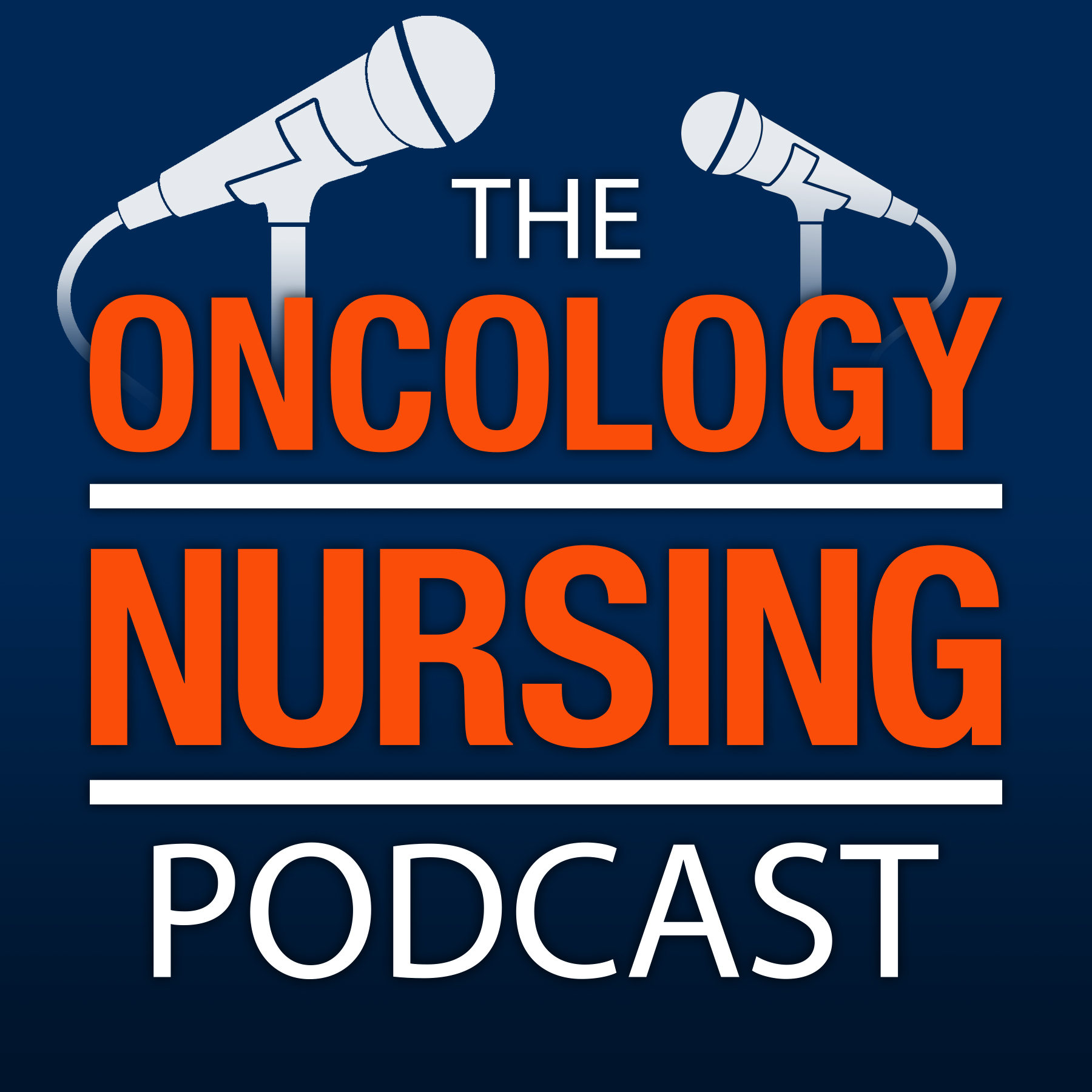
Episode 254: Oncology Nursing Certification Affects the Entire Cancer Care System

The Oncology Nursing Podcast
Shownotes Transcript
“Certification increases nurses’ knowledge, ensures that they are up to date on cancer care, and helps them to be prepared to effectively manage symptoms associated with cancer and cancer treatments. They will acquire effective therapeutic communication skills while caring for people with cancer, their caregivers, and other members of the interprofessional team,” ONS member Kerstin Scheper, DNP, RN-BC, OCN®, CHPN, interim assistant vice president at Robert Wood Johnson University Hospital in Somerville, NJ, and Oncology Nursing Certification Corporation Board of Directors member, told Jaime Weimer, MSN, RN, AGCNS-BC, AOCNS®, oncology clinical specialist at ONS, during a discussion about oncology nursing certification. You can earn free NCPD contact hours by completing the evaluation we’ve linked in the episode notes. Music Credit: “Fireflies and Stardust)” by Kevin MacLeod Licensed under Creative Commons by Attribution 3.0 Earn 0.5 contact hours of nursing continuing professional development (NCPD) by listening to the full recording and completing an evaluation at myoutcomes.ons.org) by April 7, 2025. The planners and faculty for this episode have no relevant financial relationships with ineligible companies to disclose. ONS is accredited as a provider of NCPD by the American Nurses Credentialing Center’s Commission on Accreditation. Learning outcome: The learner will report an increase in knowledge related to nursing certification. Episode Notes
Complete this evaluation for free NCPD). Oncology Nursing Podcast episodes: Episode 7: Addressing the Common Questions Facing Certification) Episode 47: Oncology Nursing Certification Test Prep) Episode 67: How Certified Nurses Help Hospitals Obtain Magnet Recognition) Episode 89: How to Engage Employers in the Certification Process) Episode 186: Certification Can Fuel Your Leadership Skills and Professional Growth)
ONS Voice articles: Demonstrate Your Scope of Practice by Becoming an Oncology Certified Nurse) What Does the Research Say About Oncology Nursing Certification?)
ONS position statement on oncology certification for nurses) Oncology Nursing Certification Corporation (ONCC)) Patients and Families) Resources for Employers and Advocates) Preparing for Certification)
ONCC FreeTake® Certification Program) ONCC DoubleTake) Prepare for certification with these ONS and ONCC certificate courses and resources: Chemotherapy Immunotherapy Certificate Course) Chemotherapy Immunotherapy Certificate Renewal Course) Radiation Therapy Certificate Course) OCN® Certification Review Bundle) AOCNP® Certification Review Bundle)
ONS books: Core Curriculum for Oncology Nursing (sixth edition)) Study Guide for the Core Curriculum for Oncology Nursing (sixth edition))
Institute for Credentialing Excellence) 2020 Medscape RN/LPN Compensation Report)
To discuss the information in this episode with other oncology nurses, visit the ONS Communities). To provide feedback or otherwise reach ONS about the podcast, email [email protected]). Highlights From Today’s Episode “The primary purpose of a certification is an assessment. . . as it’s related to oncology nursing, certification evaluates mastery of knowledge and skills required to competently provide specialized oncology care. A certificate program is different. . . . These types of programs are usually short, non-degree–granting programs that provide instruction and training to aid participants in acquiring knowledge, skills, and competencies.” Timestamp (TS) 02:34 “I find that nurses who achieve certification often report an increased feeling of personal accomplishment and satisfaction, and I see right away that increased confidence they have after they’ve passed their certification. They believe that certification validates specialized knowledge, and it gives them a strong commitment to the profession.” TS 06:09 “The personal confidence and knowledge that the nurse attains from that certification, I do believe, leads to that improved communication and improved patient outcomes. Certification can also promote recognition from peers, and that recognition promotes professional autonomy, which in turn enables the oncology nurse to take on more leadership roles . . . and gives nurses the confidence to speak up and advocate for their patients.” TS 09:37 “Certification increases nurses’ knowledge, it ensures that they are up to date on cancer care, and it helps them to be prepared to effectively manage symptoms associated with cancer and cancer treatments. I think teamwork and being able to use effective therapeutic communication skills while caring for people with cancer is something they will acquire, and not only communicating with people with cancer, but also their caregivers and other members of the interprofessional team.” TS 20:22 “Certification offers both personal and professional awards to nurses. It promotes professionalism and demonstrates a commitment to oncology nursing and accountability for our own professional development. While that’s obtaining the initial certification, we can’t forget maintaining certification. That’s an example of lifelong learning, which ensures our nurses are providing up-to-date and evidence-based cancer care.” TS 24:58